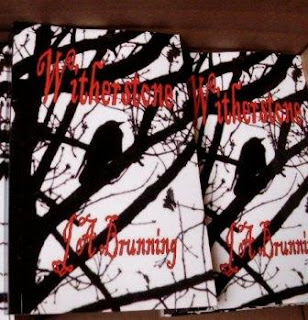All of the articles produced by the Dead Good Poets are as useful to prose writers as they are to poets, and you can read more of them here, and I'd like to thank them Dead Good Poets for inviting me.
And here it is:
'The musings about writing exercises on the Dead Good Blog this week have been thought-provoking, and in thinking about the point of writing exercises, I agree with everyone: sometimes they are really useful, sometimes what they produce seems forced and useless, and sometimes they are essential.
All writers have different techniques, and at certain times taking different approaches to our writing can be invaluable. For me, writing exercises are just the different things writers do when they write, and at times we need to try different things:
1. At writing workshops - getting the creative juices flowing even though you’re not sitting in your usual corner, cat on knee and pen/keyboard in hand, but with a group of strangers… or getting started by yourself when you’ve made some writing time (fed the cat, tidied your desk, disconnected yourself from Facebook and Twitter), only to sit with the cursor blinking accusingly on that oh-so-blank screen while it waits for you to get cracking: Exercises here force us to respond to stimuli and write something.
2. Stuck in the middle of something and not sure where it is going.
3. Final redrafting stages.
Stages of writing requiring different approaches, so you try things out and find what works for you. Some of my favourites which do it for me (and anyone caught in writing workshops with me at UCLan or at the Lancashire Writing Hub will know these, so apologies if it’s you):
1. Getting started. My muse often manifests itself through the visual, so if stuck for an idea, or how to progress the ideas I do have:
I type a random word into Google images (seaweed; bramble; tree), or key words of an idea in progress, find a picture that grabs me then use my responses to it (mermaid’s hair; trapped; twigs like bony fingers) to write a key scene. Even if you end up discarding things, the poetry of language is all in the mind so stimulating your mind visually or verbally is the key.
2. Stuck in the middle of things:
Leave your work-in-progress for a few days but let it move into your mind while you are walking, digging the garden, washing up, lying in bed. As Ste says, “live in the story”. Ideas sit in your mind and almost create themselves if you give them the time and space to do it.
Read through what you’ve got so far – this can trigger the next stage.
Write a summary/synopsis of the overall piece – what it’s about, and what the themes are. This can help to see where to go next.
3. Redrafting exercise:
- Identify underlying themes beneath what your piece is about, and the images and words you are using to create these. So, for instance, your poem is about the narrator’s relationship with his father, but what images and words are you using to show this? If using words associated with “cold” to show the father’s expression, for instance, try extending associations into his movements, the narrator’s physical and emotional responses, the landscape, etc, using cold colours, hard images, negative associations: “pale eyes”, “chill skin”, “stone”, “breath ghosting”, “empty sky”...
Is the father a threat? Does his grin suggest a certain predatory wolfishness you can extend into his movements (“slinking”), and into the landscape (the smell of animal fur or blood; a forest path), almost subconsciously suggesting the sinister landscape of fairy tale and a sense of ourselves as vulnerable, for instance. In redrafting, we can use techniques to intensify underlying themes and deepen the overall meaning.
Despite being a prose writer rather than a poet, for me all good writing is poetry as it’s all about how we use language, and the more poetic the better for me. Writing exercises are no more than the techniques we use to stimulate our minds and progress our writing in all of its stages, and as such, are as valuable as everything else we do. Writing is hard work, and the trick of it is to use everything that works for us to end up with something which reads so naturally that all that hard work is invisible.'
~
See A Dead Good Blog here!




